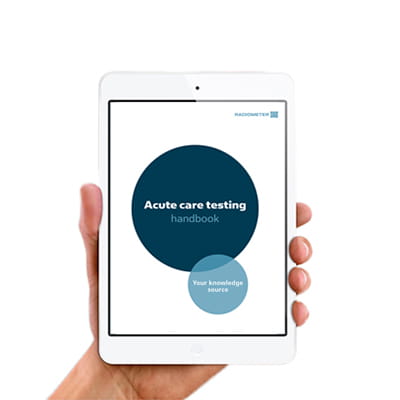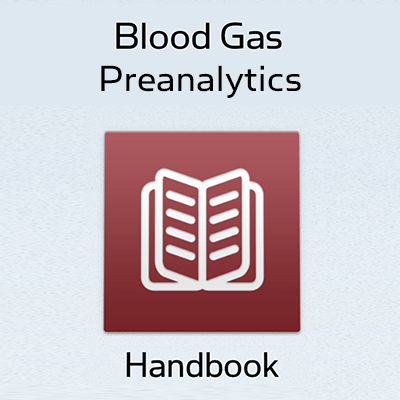Printed from acutecaretesting.org
October 2010
Blood gas interpretation in ER: room for improvement
Summarized from Austin K, Jones P. Accuracy of interpretation of arterial blood gases by emergency medicine doctors. Emerg Med Australasia 2010; 22: 159-65
If the results of a recent New Zealand study are representative, there is room for improvement in the quality of blood gas test result interpretation among emergency-room medical staff. A total of 80 emergency-room doctors (37 consultants and 43 emergency-medicine trainees) voluntarily submitted themselves for a written examination of their expertise in this area.
The exam was in the form of a two-part questionnaire. The first part comprised four questions about anion gap and A-a gradient calculation and normal range. For the second, main part of the questionnaire, doctors were presented with blood gas and electrolyte results from five patients suffering acid-base disturbance.
For each case they were asked to identify the type of primary disturbance, judge its level of severity and state if there was any degree of compensation. They were also asked to calculate the anion gap for each patient, and from a list of five possible diagnoses identify the most and the least likely cause of the identified acid-base disturbance.
A total score of 40 was possible for an all-correct response to this second part of the questionnaire. In the event consultants on average scored 31 points and trainees scored 29 points. On average consultants scored 3.65 out of a possible 6 for the first part of the questionnaire and trainees scored 2.51.
Overall no participant matched the total "expert" full score of 46 and more than a third (including 35 % of consultants) did not come within 25 % of that ideal score. The authors conclude that emergency-trainee doctors would benefit from improved training in this area and blood gas interpretation should be incorporated into consultant continuing education sessions.
May contain information that is not supported by performance and intended use claims of Radiometer's products. See also Legal info.
Acute care testing handbook
Get the acute care testing handbook
Your practical guide to critical parameters in acute care testing.
Download nowRelated webinar
Evolution of blood gas testing Part 1
Presented by Ellis Jacobs, PhD, Assoc. Professor of Pathology, NYU School of Medicine.
Watch the webinar








